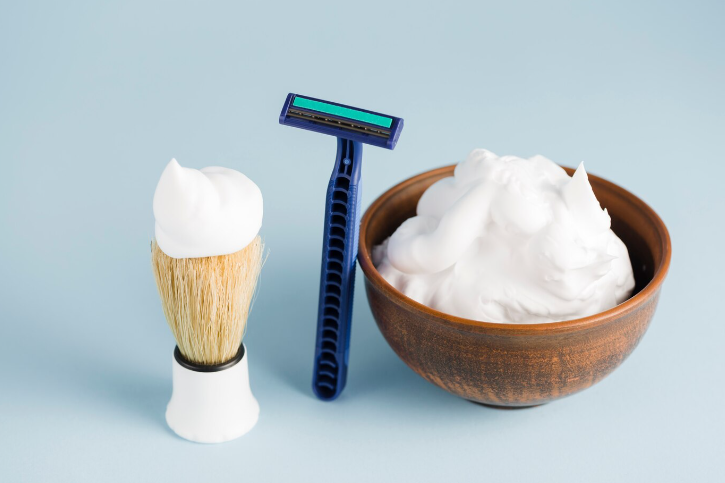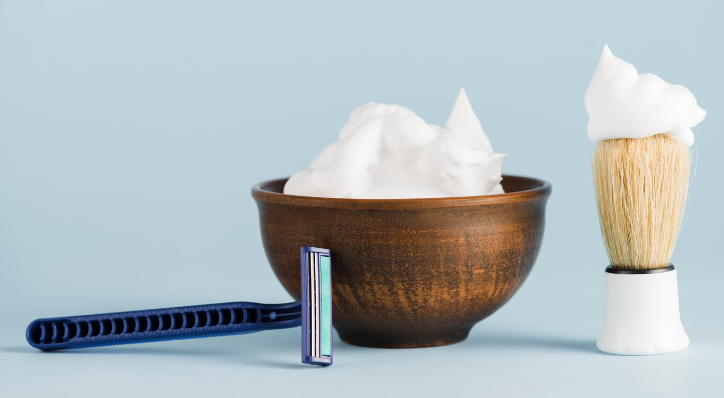Our Location
304 North Cardinal St.
Dorchester Center, MA 02124

As-salamu ʿalaykum wa-rahmatullahi wa-barakatuh. Welcome, dear readers, to an enlightening journey about maintaining cleanliness and purity, a cornerstone of our faith in Islam. Today, we will delve into the significance of cleanliness, particularly focusing on how to safely clean sensitive hair on the body. This guide aims to help you align this personal care routine with Islamic teachings, ensuring both your physical and spiritual well-being.

In Islam, cleanliness is not just about physical hygiene—it’s a spiritual imperative. The Prophet Muhammad (peace be upon him) said, “Cleanliness is half of faith” (Sahih Muslim). This highlights the importance of maintaining purity in our daily lives, especially as we prepare for acts of worship such as Salah (prayer), Hajj (pilgrimage), and Sawm (fasting).
One of the lesser-known but equally important practices in Islam is the 40-day rule. This tradition involves cleansing sensitive hair on the body every 40 days. It symbolizes spiritual renewal and the continuous effort to maintain purity. Adhering to this practice reflects our commitment to staying pure for prayers and our devotion to Allah.

Let’s explore some practical, safe, and Islamically appropriate steps for cleaning sensitive hair on your body:
Opt for mild, fragrance-free cleansers and shampoos designed for sensitive skin. Avoid products with harsh chemicals and allergens to prevent irritation. Look for those labeled hypoallergenic or suitable for sensitive skin.
Before each prayer, perform Wudu (ablution) with mindfulness. Ensure that water reaches all parts of your body, including sensitive hair. Use your fingers to gently massage the scalp and cleanse thoroughly.
Honor the tradition of cleansing sensitive hair every 40 days. This practice not only aligns with spiritual renewal but also ensures regular hygiene. Set reminders to keep up with this routine, strengthening your spiritual discipline.
Treat sensitive hair with care to avoid tangling or breakage. Use a soft washcloth or your hands to lather the cleanser onto your body and hair. Avoid harsh scrubbing or rubbing which can damage delicate hair and skin.
Make sure to rinse thoroughly to remove all traces of cleanser and impurities. Use lukewarm water as it helps maintain the natural balance of your skin and hair without causing dryness or irritation.
After cleansing, moisturize your skin and hair with hydrating lotions or oils. This helps replenish moisture and soothe any irritation. Choose non-comedogenic products to avoid clogging pores.

Maintaining cleanliness is a deeply spiritual act in Islam, intertwined with our daily rituals and acts of worship. By understanding the importance of cleanliness, observing the 40-day rule, and following these practical steps, we can uphold our spiritual duties while taking care of our physical health. May this guide inspire and assist you in your journey of maintaining purity and connecting with Allah through the practice of cleanliness.
Remember, dear readers, our commitment to cleanliness is a testament to our faith and devotion. Let’s embrace these practices wholeheartedly, ensuring our bodies and souls remain pure for the worship of Allah.
Jazak Allahu Khairan for reading, and may Allah bless you with good health and strong faith.